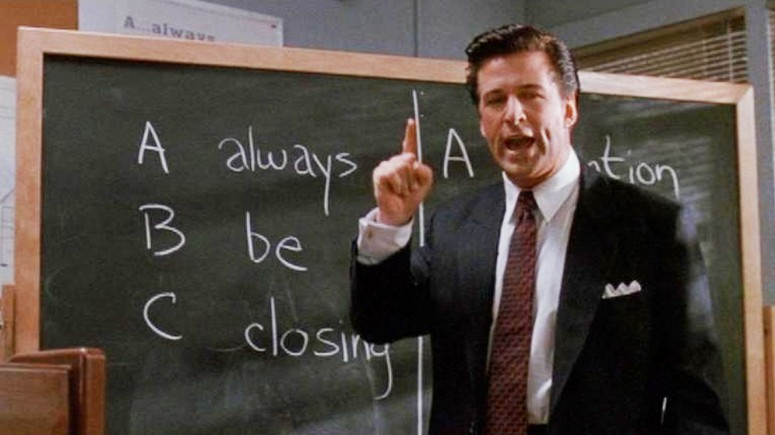
I was recently asked my approach to sales, given that I spend significant time asking people if I can write for them. Here it is in its entirety:
“Hi, human. I sell this thing for a living because I believe in it. It’s benefited myself and others like you. Are you the right person to pitch? If no, do you know someone who is? If yes, is now a good time?”
That’s it. This gentle but persistent approach has served me well, because it respects timing as much as finding and asking the right person.

New Line Cinema
Selling is a challenge. It requires unwavering confidence, polite persistence, and a deep understanding of buyer demand. It also requires an ability to withstand constant rejection, unfortunate timing, and even bad luck.
Whether you sell to businesses or consumers, overcoming buyer objections in another challenge. Some may be unique to your trade, but most are quite common, regardless of industry. What are they and how can they be surmounted?
To find out, I ransacked dozens of reports, expert analyses, and top Google results. After the dust had settled, I encountered close to 100 specific objections. But most (if not all) of those are merely variations of seven fundamental objections, which I’ve distilled and categorized below.
Before getting down to the nitty gritty, a word of caution: sellers must first understand theirs and their prospects’ available “walk-away” options before addressing any concerns. If you don’t respect those, you’ll fail to appreciate the nuances of your market and have a harder time overcoming legitimate buyer objections.
Furthermore, “objections are a gift,” says Kyle Porter, CEO of SalesLoft. “It’s the customer telling you something that will help you sell to them.” In that sense, buyer concerns are rarely outright rejections—they’re merely requests for more information. Hence, good communication is key to overcoming them.
With that out of the way, here are the seven most common buyer objections and advice for overcoming them: Continue reading…


